Introduction: How to Make a Miniature From a Collectible
today we gona make a mini version of a colectible you can make whatever you want,
this project will work for dioramas or scenes
Step 1: Materials
- Your collectible, It can be the one you want or your preference.
- A Camera, with good focal length.
- 3D and design Software of your choice
- Pepakura Software.
- Printed Material.
- Cardboard.
- Scissors/Knife/X-acto.
- Hot glue Gun.
- Glue.
- Small Ruler.
- A piece of PVC Film protector (It's usually found on the packaging of super market products.)
last but not least, Patience.
Step 2: My Collectible
I will use a giant tom and jerry collectible figure
As you can see in the image I put it next to a conventional drink can so you can see the size.
In this project I will make it miniature using various techniques of working on paper
so join me on this path...
Step 3: The Box
First of all we will take pictures of all the faces that the box has, both sides, front, upper, lower and back.
We will use the option of the linear guides of our camera to achieve a photo as straight as possible, and if you do not have a camera with a great Focal length range you can use your cell phone by moving away a little and enlarging the image.
remember that we can also edit it later in our design program of preference, as you can see in the example dragging nodes until achieving a straight composition.
Step 4: Views
After taking pictures of our box, we will take out the collectible and take photos of each of its front, both sides and back views.
Getting something close to what is seen in the image.
Step 5: 3d Model
This step is not so vital, since you can download from the internet infinite box designs which fit your character or collectible toy, you can check on this site: TEMPLATES
where you can create your box with the exact measurements, export it to the file format more functional for your workflow and then edit it in the design software of your choice.
I used a basic 3d modeling in which you generate a uv map and there you attach the textures of the photographs we take.
Then with the help of the Pepakura software I generate a printed 2D plane that will later be cut out to bring it to 3 dimensions.
Pepakura Designer is a application which makes unfolded 2D patterns from 3D data.
Step 6: Cutting
After having everything ready and printed it is time to start cutting, as you can see I clone many of the views of my toy in case they were necessary later. you will see why.
I recommend printing on a full color printer. and on a paper that gives it shine and characteristics similar to those of the original box
Step 7: Cardboard
after cutting it is time to glue our pieces on cardboard to give them levels.
For this step we will use the glue and we will join our printed parts to the cardboard, here I used a rather thin cardboard but with structure.
Step 8: Cutting Small Details
Be patient and calm when using the exact one to cut the cardboard since due to the size and the small details they will not be easy at all.
Step 9: Volume
now we will use the cloned parts to create levels on the main impression, observe your figure and find the best areas to create bumps that give volume, be guided by the image.
due to the size I just only create one level for the front view.
join all the small cut parts.
Step 10: Cutting the Box
It is time to cut the box, we will use the guides remembering to leave a tab that serves as a counterpart to join.
use the ruler to get straight and fine cuts, we will also use the ruler and an embossing ball tool to generate the respective folds
Step 11: Assembling
finally cuts all views.
Step 12: Film Protector
Now cut the piece of protector, from any piece that can come out complete, you can find this piece in hygiene products, electronics or old toy boxes.
use the hot glue to assemble the box gradually attaching the protector.
Step 13: Folds
once again use the ruler and embossing tool to make the respective folds.
in the pvc piece make the fold of the fold being careful not to scratch the piece or you will have to start over with a new piece.
Step 14: Final Steps in the Box
With the box assembled, we only need to seal it at the bottom...
Step 15: Joining the Views
but before that we have to assemble our character well, but before that we have to put together our character well by hitting each face of the views in its respective place.
Step 16: Joining the Collectible and His Box
When we have our character armed we will add a base to give it more internal stability.
Step 17: Keeping It in Its Case
Now we will seal with hot glue our mini collectible character in his case.
Step 18: Comparison
Now we only have to compare our original piece with its miniature counterpart, which will serve to decorate a diorama or a mini photography scenario, a cute tiny gift, the sky is the limit.
I, for example, will use it to decorate a composition of 1/6 figures or something like a tiny room.
Step 19: Final Results and Experience
I really did not expect the result to be so gratifying, I really enjoyed doing this project a long time ago I had it in my mind and now I don't know where to start with my other figures to make a mini version of my room in this style. maybe later buy a 3D printer and take this project to the next level.
Step 20: Tiny Tom and Jerry.
One last appreciation.
Step 21: Thanks for Watch.
And have fun makin' it.
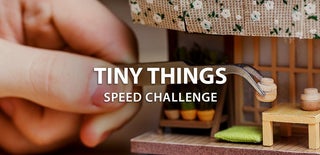
Participated in the
Tiny Things Speed Challenge



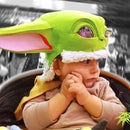
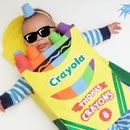




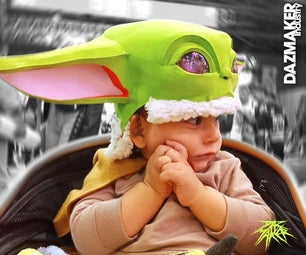

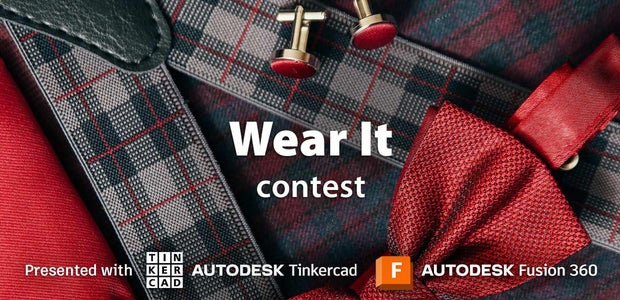


Comments